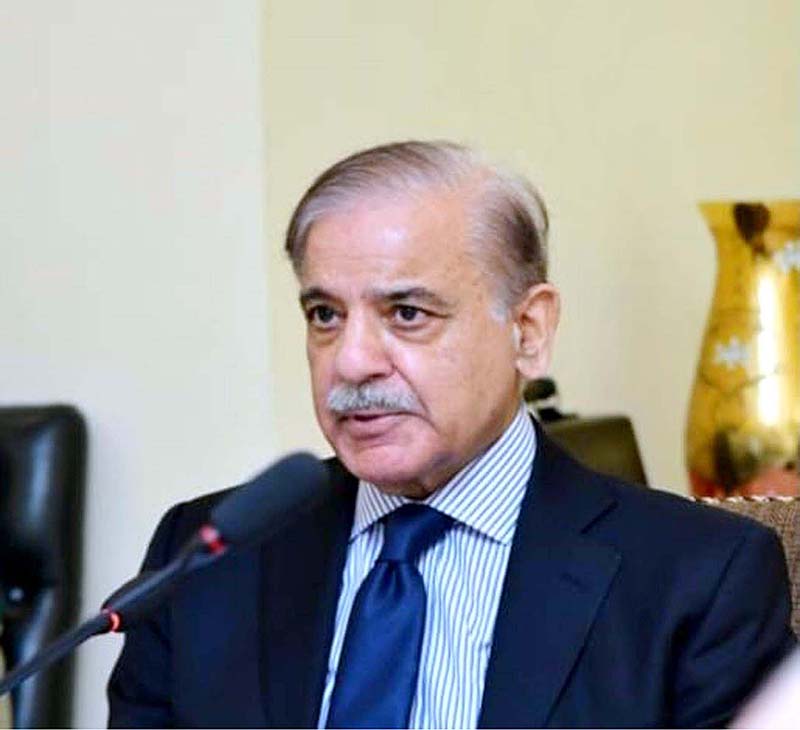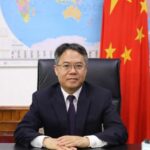ISLAMABAD, Jun 6 (APP):Prime Minister Shehbaz Sharif on Tuesday said the government was launching a Green Revolution 2.0 to make the country achieve self-sufficiency in the agriculture field.
The prime minister, who chaired the meeting of the National Economic Council here, said the government was taking all-out measures to innovate the agriculture sector to enhance the production and par acre yield.
He said economic development topped the government’s priorities for which it was investing in education, health, modern infrastructure, and technology sectors.
The NEC approved a reviewed Public Sector Development Programme 2022-23 and national development budget for the fiscal 2023-24 with an outlay of Rs 2,709 billion.
Under the development program, the center would spend Rs 1,150 billion including Rs 200 billion through public-private partnership and Rs 950 billion of the PSDP.
The total provincial development budget would be Rs 1,559 billion. This includes Rs 426 billion for Punjab and Rs 268 billion for Khyber Pakhtunhwa for a period of four months as both the provinces were awaiting general elections and being ruled by caretaker setups.
The NEC approved Rs 617 billion development budget for Sindh and Rs 248 billion for Balochistan.
It also approved an increase of 17 percent in the development budget which comprised 1182 development schemes including 311 new and 871 ongoing ones.
The Ministry of Planning and Development briefed the meeting about the 4RF project. It was told that a huge amount was being spent for the reconstruction of flood-hot areas, through funding from development partners, including World Bank, Asian Development Bank and Islamic Development Bank.
The NEC, which discussed and held a consultation on the overall economic situation, also approved the Pakistan Economic Outlook 2035.
The prime minister said that the country could not progress until all of its federating units were prosperous.
He said despite funding constraints, the Federal Government would fulfill the provinces’ demand for for development funds and ensure judicious distribution of resources.
In this regard, the prime minister said a committee had been constituted under Planning Minister Ahsan Iqbal to ensure that no discrimination was carried out in the allocation of funds to the provinces.
Prime Minister Shehbaz said by the end of PML-N government in 2018, the development budget stood at Rs 1,000 billion which was reduced to Rs 550 billion in 2021-22. The national development was deliberately impeded through this criminal act, he remarked.
Contrarily, the incumbent government doubled the development budget despite the economic challenges and allocated Rs 1,150 billion for the next fiscal to make Pakistan progress and the common man reap the benefits, he added.
The NEC was told that the growth rate stood at 0.3% despite the economic difficulties inherited from the previous government and $30 billion losses inflicted by the unprecedented floods.
The meeting also approved the economic growth target of 3.5% for the next fiscal year. It was told that the investment ratio stood at 13.61 % during the current year which had been set at 15% for the next year.
The planning minister briefed the participants about the 5Es under which a special focus was being given to the promotion of exports, e-Pakistan, environment, energy, and equable Pakistan. Under the framework, an agenda had been devised which was inevitable for the country with the top focus on exports growth.
The NEC gave in principle approval to the Pakistan Economic Outlook 2035. The planning ministry, in coordination with the provinces and other stakeholders, would prepare a vision document and strategy paper.
The meeting was told that in the absence of any planning, the country’s growth slowed down during the previous government which could have taken down the fiscal volume to $ 550 billion by 2035 and the poverty ratio surged to 40%.
Contrary to that, the incumbent government was coming up with a Transformational Growth Model, which by 2035, would help raise Pakistan’s GDP to $ 1,000 billion and average annual growth rate to 6.2% and poverty rate reduced to 15%.
The NEC was told that the next budget would focus on infrastructural development, social sector, climate change, education, information technology, agriculture, and reformation of energy sector.
The meeting approved the annual programme report of CDWP and ECNEC from April 2022 to March 2023.
It also approved a 145 percent increase in the higher education budget taking the total budget to Rs 60 billion. Contrarily, the previous government had allocated Rs 24 billion during 2021-22.
Besides, the NEC also approved Rs 80 billion under the PM’s initiatives for youth loans, Pakistan Education Endowment Fund, IT Start-ups, laptops scheme, youth skill development and venture capital programme.
The meeting was also briefed on the national energy conservation plan which would reduce the import bill by $ 1 billion within a short span. On the occasion, the provincial governments were also urged to play their part in the execution of the energy conservation plan.
Federal ministers Syed Naveed Qamar, Ishaq Dar, Ahsan Iqbal and Maulana Asad Mahmood, chief ministers of Sindh and KP, Senator Nisar Khoro, KP finance advisor, senior minister of Balochistan and caretaker Punjab chief minister attended the meeting.






